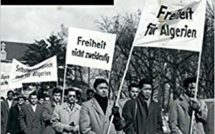
The Contemporary Presence of the Past: Memory Studies in the Council for European Studies and Beyond

In recent months, the past has seemed almost omnipresent in politics and media. Of course, the strategic and instrumental use of memory is anything but new. However, as Michael Rothberg recently pointed out, we do currently appear to be living in a “moment of danger” in which memory has become particularly salient[1] – both in terms of being abused by authoritarian and populist forces, and in terms of its importance in resisting them. Memory has been harnessed in the form of historical analogies, in the more subtle shape of language that is loaded with mnemonic meaning, and even in the form of absences and silences. To cite just a few examples: Turkish President Recep Tayyip Erdogan has repeatedly protested the cancellation of campaign events of members of his cabinet in Europe by comparing German and Dutch decision-making to Nazi policies. US President Donald Trump has likewise used this kind of comparison to malign the actions of American intelligence agencies.
But the use of historical analogies is not confined to the political right: commentators on the other side of the political spectrum have argued that there are many parallels between the current populist wave and the rise of fascism in Italy and Germany in the interwar period. In this context, the use of language to subtly (and sometimes not so subtly) link to past experience or previous discursive schemata has played an important role. The clearest instance of such practices is the Trump administration’s recurrent vilification of the press as the “enemies of the people” or of minorities as “criminals and terrorists.” In the case of some European populists, such as the Dutch Geert Wilders and the French Marine Le Pen, liberal values such as gender equality and even gay rights are rebranded in the service of denigrating Muslim immigrants. This is an effective merger of old strategies of exclusion with novel content, if you will. Such tried and true techniques breed mistrust and prejudice. And sometimes, memory works even more effectively through silences than through words. The omission of Jews from the White House’s statement on Holocaust Remembrance Day in 2017 and the lack of response to the growing number of hate crimes in the US are only the most recent examples of how willful forgetting of the past can lead to real consequences in the present. And of course, even without the recent uptick in racist and anti-Semitic violence in Europe and North America, even before the assault on the rights and safety of the democratic opposition in Turkey, Russia and elsewhere, human rights abuses and the production of individual and collective trauma are our constant companions.
However, memory is about more than the dark side of politics: advocates for human rights, democracy, and peace also routinely make use of historical analogies and languages of times-past in order to convince, mobilize, and motivate their supporters. Social movements – including those who came together in the Womens’ Marches around the world on January 21st – employ repertoires of historical struggles. Musicians, artists, and museum curators consciously seek to integrate a sense of democratic remembrance in their output, thus actively working for human rights education. And a recent effort to rekindle support for European integration, the “Pulse of Europe” movement, makes explicit links to foundational narratives and rituals (such as the public singing of the “Ode to Joy”) to bolster the European project and its significance for the establishment of peace on the continent.
Thankfully, there is a field of inquiry that is very much tuned in to the kinds of questions and concerns raised here. Memory studies has conceptual and methodological tools that can help to unearth the dynamics underlying the usage of historical analogies, their use and abuse in political discourse and the consequences this can have for societal developments. The great advantage of memory studies in this context is its interdisciplinarity. The field connects both the humanities and the social sciences, and bridges disciplines that are as far apart as law and anthropology. In addition, research in memory studies goes beyond the sensationalism of news stories covered by the media. Even if memory scholars concentrate on dramatic experiences, such as human rights violations, their goal is to analyze them in a longue-durée fashion. By investigating the multiple and conflicting ways in which remembrances are shared, transformed, and reproduced within and across established boundaries, they attempt to discover schemata that underlie the construction of identities.
The field is not new in terms of its theoretical lineage. One could say that memory as such has been a topic of investigation since the ancient Greeks. Yet, it emerged as a distinct research program only in the late nineteenth and early twentieth century. Scholars such as Sigmund Freud, Henri Bergson, Emile Durkheim, Maurice Halbwachs, Aby Warburg, Arnold Zweig, Karl Mannheim, Frederick Bartlett, and Walter Benjamin became interested in the intersections between culture and remembrance. Despite increasing interest in memory studies, especially in sociology, it was not until the 1960s that not only particular memories but memory itself became the subject of intense public as well as scholarly debate. In the 1980s, a veritable “memory boom” began at first in the humanities and has since then spread to the social sciences. The trend gained momentum in the 1980s and ’90s, not only in the academic world, but also in the political arena, the mass media, and the arts. Especially in recent years, memory studies has seen a heightened level of institutional recognition and development: New university courses deal specifically with memory issues were inaugurate, networks that try to connect scholars doing research in memory studies were created, and journals that publish cutting-edge research, examining remembrance from many different angles were founded.
The Council for European Studies recognized this trend by awarding a Research Network dedicated to issues of Transnational Memory and Identity in Europe, which we initiated and launched in summer 2015. In November, the Network’s constitution was ratified via an online vote. Elections to the Governing Board took also place in November 2015, adding Lily Gardner-Feldman (Johns Hopkins University), Sara Jones (University of Birmingham), and Nicolas Moll (independent researcher and activist in Sarajevo) to the leadership team. Since then, the Network has grown into a major hub for scholars interested in questions of memory and identity. Its members come from over thirty countries, are located in all six continents, and represent many different disciplines (sociology, history, political science, cultural studies, anthropology, languages, law to name just a few). Our research interests cover issues related to transitional justice, trauma, transnationalism, migration and exile, memory and conflict, transgenerational memory, and more. The width of expertise and research interests represented within the Network allows for fruitful and enriching cross-topic interactions among network members. The Network has a very active mailing list, and since its inception less than two years ago, has managed to organize a number of successful events (i.e. an authors’ workshop to prepare an edited volume in 2016).
Since December 2016, the CES Research Network has supported the foundation and is directly connected to a larger umbrella organization that serves as a professional association for memory scholars: the newly founded Memory Studies Association. The MSA seeks to bring together the many dispersed and somewhat disconnected memory studies networks to further foster interaction between scholars, research-oriented practitioners, and policy-makers. Its foundation responds directly to the perceived lack of a clearly designated professional venue for people from different disciplinary and professional backgrounds to exchange ideas and to learn from each other’s theoretical, methodological, and empirical approaches. The MSA furthermore aims at actively identifying and inviting scholars and practitioners who are thus far underrepresented in existing scholarly networks (minorities, scholars from the global south, etc). Finally, the MSA seeks to foster politically and civically engaged scholarship by publicly voicing concerns about political uses of the past, like the ones mentioned in the introduction to this blog-post.
The MSA will hold its second annual conference in Copenhagen, 14-16 December 2017, and would very much welcome contributions by members of the CES community. The call for papers will be published in April 2017 on the MSA website, as well as through the CES Research Network on Transnational Memory and Identity in Europe. Please also consider joining the Research Network!
We also hope to see you in Glasgow: please attend some of the panels organized by the Research Network, as well as the membership meeting at lunchtime on Thursday, July 13!
Aline Sierp is Assistant Professor in European Studies at Maastricht University (NL). She holds a PhD in Comparative European Politics and History from the University of Siena (IT). Her research interests cover collective memory, questions of identity, and European integration. Before joining the University of Maastricht, Sierp worked as researcher at the Dachau Concentration Camp Memorial Site (DE). She has published widely on memory and identity issues and is the author of History, Memory and Transeuropean Identity: Unifying Divisions (Routledge, 2014). Aline is the co-founder and co-chair of the Memory Studies Association and the Council of European Studies’ Research Network on Transnational Memory and Identity in Europe.
Jenny Wüstenberg is DAAD Visiting Assistant Professor in Political Science and German & European Studies at York University in Toronto. After receiving her PhD in Government & Politics from the University of Maryland, Jenny worked at the School of International Service at American University, at the Free University of Berlin, and for the Independent Academic Commission at the Federal Ministry of Justice for the Critical Study of the National Socialist Past. She is the author of Civil Society and Memory in Postwar Germany (Cambridge University Press, forthcoming in July 2017). Jenny is the co-founder and co-chair of the Memory Studies Association and the Council of European Studies’ Research Network on Transnational Memory and Identity in Europe, as well as co-chair of the German Studies Association’s Interdisciplinary Memory Studies Network. Her research focuses on memory activism and transnational networks in memory politics.
References:
[1] Michael Rothberg’s remarks at the inaugural Memory Studies Association Conference in Amsterdam, 3-5 December 2016.
Photo: Holocaust Illustration, Eugene Ivanov | Shutterstock
Published on April 4, 2017.




